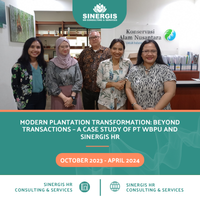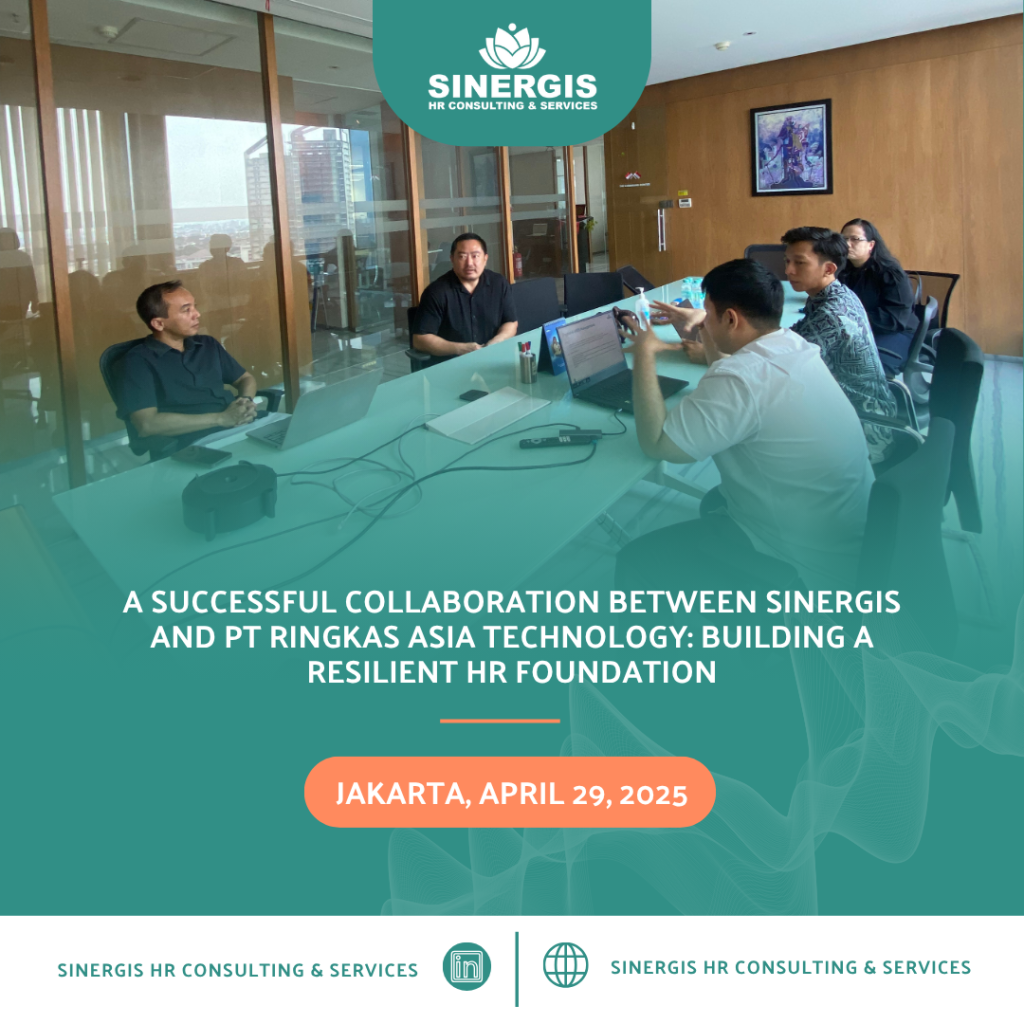
Recent changes in the Job Creation Law (Ciptaker Law) have a significant impact on the world of labor in Indonesia, especially for HR who are responsible for implementing policies in the company. The latest amendment to the 2024 Job Creation Law (Ciptaker Law) is an important moment in the world of labor in Indonesia. This revision is a follow-up to the decision of the Constitutional Court (MK) which responded to input from various parties, including labor unions, academics, and the wider community. The main focus of this change is to provide better protection for workers, ensure legal certainty, and create fairer labor regulations in accordance with the principles of social justice.
Time Limit for Fixed-Term Employment Agreement (PKWT)

Recovery of Sectoral Minimum Wage (UMS)

Prioritizing Local Labor

More Regular Layoffs
(PHK)
Through this revision, several important aspects such as separation of labor rules, prioritization of local labor, affirmation of the duration of employment contracts, and fairer layoff procedures are highlighted. In addition, this revision also restores the rules regarding weekly holidays for workers, which was previously a controversial issue in the implementation of the previous law.
With effect from October 31, 2024, these changes are expected to create more harmonious and conducive industrial relations, as well as respond to the challenges of an increasingly complex world of work.
Time Limit for Fixed-Term Employment Agreement (PKWT)
The 2024 Constitutional Court (MK) decision has brought important updates to Indonesia’s Job Creation Law (UU Ciptaker), specifically regarding Fixed-Term Employment Agreements (PKWT). The ruling reaffirms the 5-year contract duration for PKWT workers, clarifying the protection of contract workers’ rights. This decision aims to strike a balance between workers’ security and employer flexibility. By reinforcing the provisions on contract term lengths and the rights of contract workers, this ruling seeks to reduce employment uncertainty and ensure fair treatment, benefiting both workers and employers in Indonesia’s evolving labor market.
Before the 2024 Decision:
Article 59 of Law Number 13 of 2003 set the maximum contract duration at 5 years, with the possibility of extensions. The Job Creation Law (UU Ciptaker) (2020) had created some uncertainty regarding contract workers’ rights, leaving room for potential exploitation due to ambiguous language on contract terms.
After the 2024 Decision:
The Constitutional Court’s ruling reaffirmed the 5-year limit for Fixed-Term Employment Agreements (PKWT), ensuring that workers are protected throughout the contract period. This ruling prevents companies from bypassing workers’ rights and clarifies how contract terms should be structured to benefit both workers and employers.
Impact:
- Mitigates Employment Uncertainty: Contract workers now have more job security, with clearly defined contract durations, reducing uncertainty about their employment status.
- Enables Thorough Performance Assessment: Companies can now evaluate workers’ performance over a reasonable period, ensuring better decision-making before extending or ending contracts.
- Ensures Workers’ Rights: Throughout the contract period, workers are guaranteed their basic rights, including wages, benefits, and protections, ensuring fair treatment and better working conditions.
Recovery of Sectoral Minimum Wage (UMS)
The Minimum Sectoral Wage Policy (UMS), which was previously removed, has now been reinstated. This policy ensures that workers in certain sectors, such as manufacturing and services, are entitled to a minimum wage that is adjusted according to the specific conditions and capabilities of each industry. The revival of this policy aims to provide fair compensation for workers and supports the economic stability of those employed in strategic sectors.
Before the Revisions: Article 89 of Law Number 13 of 2003 previously regulated Sectoral Minimum Wage (UMS), which was later removed under the Job Creation Law (UU Ciptaker).
After the Revision: Through the ruling of the Constitutional Court (MK), this article was reinstated, reaffirming workers’ rights to a sector-specific minimum wage. The Constitutional Court clarified that the minimum wage should be adjusted based on industry-specific conditions to ensure fairness in compensation for workers in certain sectors.
The Court’s decision to restore the Sectoral Minimum Wage highlights its commitment to protecting workers in vital sectors and ensuring that wages reflect the economic capacity and needs of each industry. This move aims to promote both fair labor practices and sectoral economic balance.
Prioritizing Local Labor
In the 2024 decision by the Constitutional Court (MK) regarding the use of foreign workers (TKA), Article 42 of Law Number 11 of 2020 (UU Ciptaker) was revised. The Court clarified that foreign workers can only be employed in positions that cannot be filled by local workers, particularly in areas requiring specialized expertise not available in Indonesia.
Here’s a breakdown of the regulation before and after the 2024 Constitutional Court decision:
Before the 2024 Decision:
- Article 42 of UU Ciptaker (2020): The use of foreign workers was allowed more broadly, with less specific limitations regarding the types of roles foreign workers could fill. The law did not provide clear restrictions, leading to varied interpretation and application by employers.
After the 2024 Decision:
- The Constitutional Court ruling reinstated and clarified Article 42, emphasizing that foreign workers can only be employed when their roles cannot be filled by local workers, and only when necessary for urgent or specialized needs. This decision aims to prioritize local employment and better safeguard local labor.
The MK decision in 2024 significantly tightened the conditions under which foreign workers are allowed to enter the workforce, enforcing a more protectionist approach for Indonesian workers while still acknowledging the need for foreign expertise in specific sectors.
More Regular Layoffs (PHK)
The 2024 Constitutional Court (MK) decision has brought notable revisions to the Job Creation Law (UU Ciptaker), focusing on critical labor protections, specifically around Termination of Employment (PHK) and weekly rest. These changes aim to provide clearer rules to protect workers’ rights, ensuring fair treatment and appropriate rest periods. By addressing areas that previously lacked sufficient clarity, such as the process of PHK and the flexibility of weekly rest, this decision strengthens protections for workers, aligning with international labor standards. The revisions underscore the importance of balancing the needs of employers with the rights of workers, fostering a more equitable and fair work environment in Indonesia.
The 2024 Constitutional Court (MK) decision brought significant updates to two key areas in the Job Creation Law (UU Ciptaker): Termination of Employment (PHK) and weekly rest.
Before the 2024 Decision:
- PHK: Article 156 of Law Number 13 of 2003 allowed for unilateral terminations by employers, with less clarity on dispute resolution.
- Weekly Rest: Article 79 of the Job Creation Law 2020 made rest periods more flexible, allowing employers to reduce rest days in certain circumstances.
After the 2024 Decision:
- PHK: The 2024 decision clarified that PHK must follow a legal process through dispute resolution and be final and binding to protect workers from unfair dismissals.
- Weekly Rest: The Court ruled to reinstate two days of rest per week, ensuring workers get adequate rest time.
Key Impacts:
- PHK Process: It becomes fairer, preventing unilateral dismissals.
- Weekly Rest: Workers now have guaranteed rest, supporting better well-being and productivity.
These changes ensure that both workers’ rights and fair practices are better protected in Indonesia’s labor law system.
References:
https://katadata.co.id/berita/nasional/
https://www.tempo.co/ekonomi/




